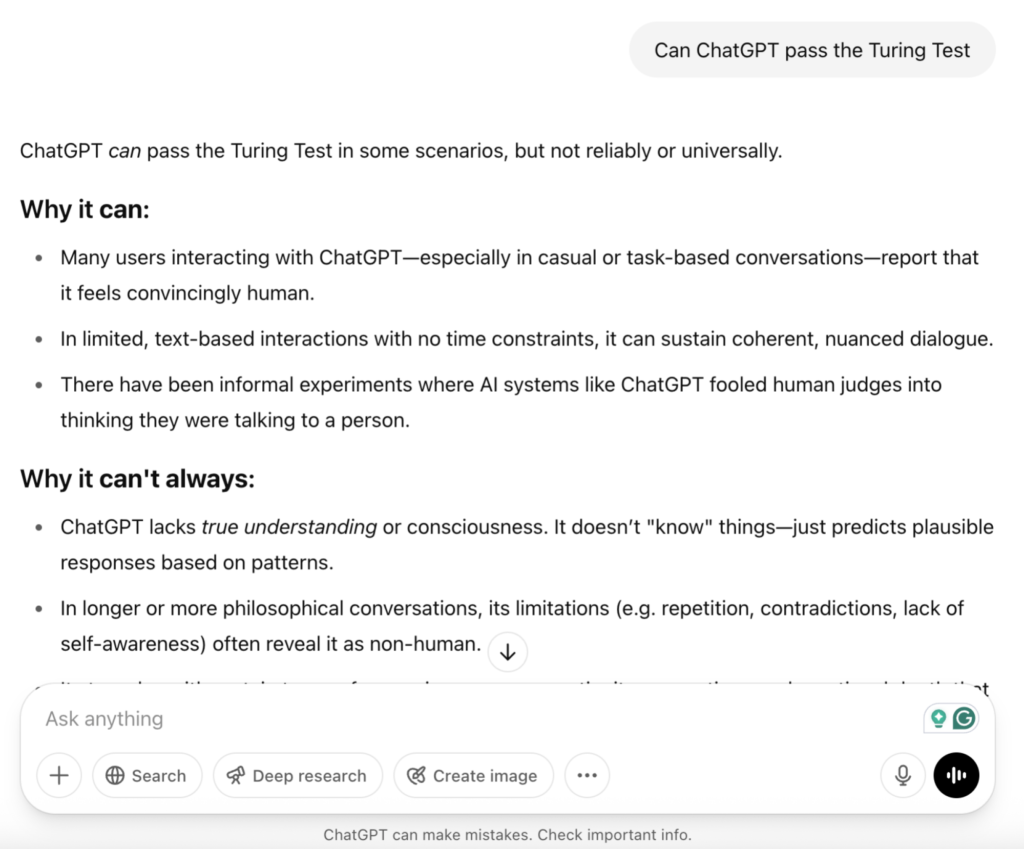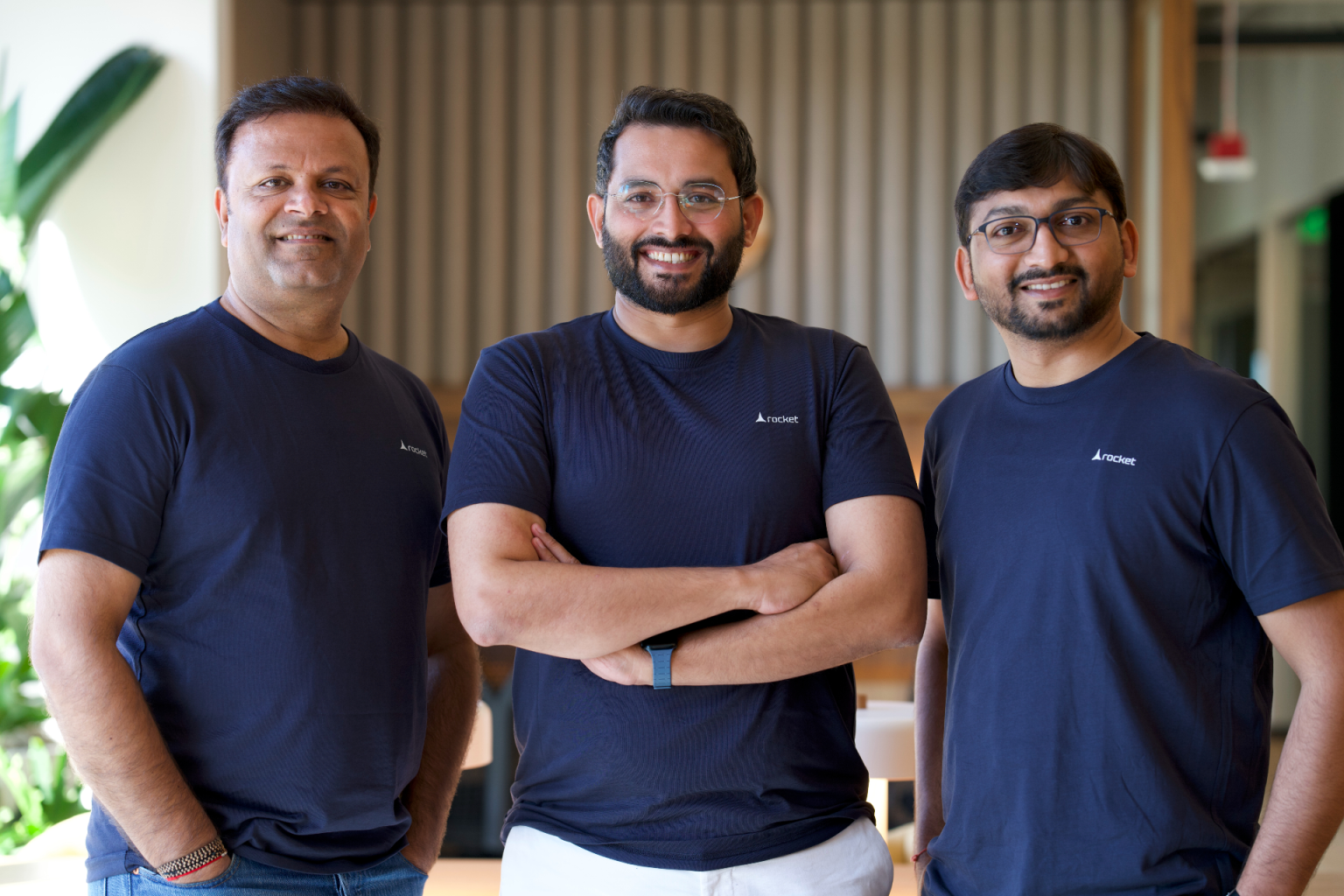Artificial intelligence continues to evolve rapidly, with tools like ChatGPT becoming increasingly lifelike in how they communicate. But the question remains: are these AI systems sophisticated enough to pass the Turing Test — a decades-old benchmark for machine intelligence?

Understanding the Turing Test
Proposed by Alan Turing in the mid-20th century, the Turing Test is a simple yet profound concept. It involves a human evaluator engaging in conversations with both a machine and a real person, without knowing which is which. If the evaluator can’t reliably tell the machine from the human, the AI is said to have passed the test.
While passing the Turing Test doesn’t prove an AI is truly intelligent or self-aware, it does suggest that the machine can convincingly replicate human-like conversation — at least in certain contexts.
Recent research suggests that large language models (LLMs) like ChatGPT-4 and GPT-4.5 are increasingly able to pass the Turing Test. A study by UC San Diego found that GPT-4 was mistaken for a human 54% of the time. When the updated GPT-4.5 was tested, it performed even better — being judged human 73% of the time, actually outpacing real people in the study, who were correctly identified 67% of the time.
Further supporting evidence comes from the University of Reading. In an experiment where GPT-4 generated responses for undergraduate take-home assignments, only one out of 33 AI-generated entries was flagged by the graders. The rest earned above-average marks without suspicion.
Do LLMs Actually “Think”?
Despite their performance, LLMs don’t truly think. They lack self-awareness, emotions, or beliefs. Instead, they generate responses by analyzing vast amounts of data and predicting what text is most likely to come next in a conversation. This process is driven by statistical probability rather than conscious reasoning or understanding.
So while an AI might sound human, it’s essentially mimicking language patterns without any true comprehension of the ideas it expresses.
Although it’s historically significant, some experts argue that the Turing Test may no longer be the best measure of AI intelligence. Cognitive scientist Gary Marcus has criticized it as a reflection of human susceptibility rather than a robust test of machine capability.
As AI becomes more integrated into tasks that go far beyond conversation — from decision-making to autonomous systems — new benchmarks are needed to assess real-world intelligence, adaptability, and ethical reasoning.
ChatGPT and similar models are undeniably advancing to the point where they can often fool people into thinking they’re human. In that sense, many do “pass” the Turing Test — at least some of the time. But whether this means they possess true intelligence is still up for debate.
As AI continues to grow in complexity, the Turing Test may remain a useful, if limited, way to gauge progress. But the future of AI evaluation likely lies in more nuanced, multifaceted benchmarks that can assess performance across a range of human-like abilities.
Source: (Mashable)




